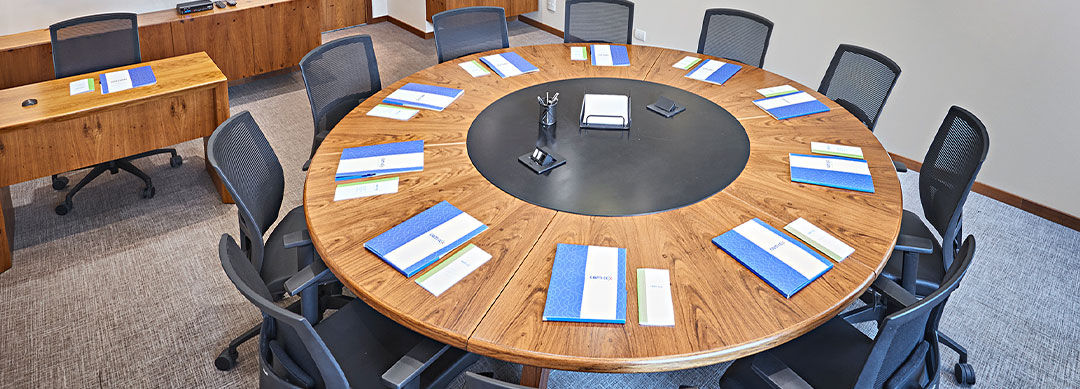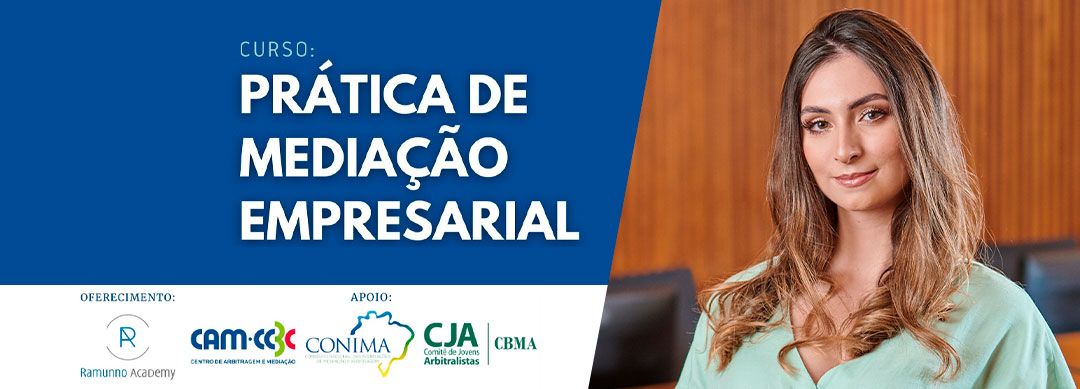In a pioneering format, the seventh edition of the CAM-CCBC event promoted debates on topics such as diversity, current challenges and trends for the coming decades
By Sérgio Siscaro
The VII CAM-CCBC Arbitration Congress has made history, establishing an innovative precedent in events in the area of alternative dispute resolution procedures. This edition was a pioneer in the arbitration community for having used a hybrid format, bringing together features of a face-to-face event with those of an online broadcast. Between October 19 and 20, the Congress discussed topics that directly impact the universe of arbitration – such as diversity, new standards for the practice of advocacy, application of the method by public administration and trends for the coming years. Therefore, the initiative once again contributes to solidify in the country the culture of alternative dispute resolution procedures (ADRs).
The innovative format, promoted due to the social distancing imposed by the Covid-19 pandemic, brought participants closer to a face-to-face experience. The Congress was conducted from a professional recording studio and had the presence of some of the speakers. According to the guidelines of public health authorities, all safety measures were guaranteed during the event. The new format gave more agility and dynamism to the event, besides allowing a fast online sharing of contents.
“Despite the long path that the arbitration community has to go, we have to celebrate the victories and always remain vigilant in the technical improvement and promotion of the debates that promote the development in the ADRs”, said CAM-CCBC’s President, Eleonora Coelho. “The VII CAM-CCBC Congress was one of those victories. It was an honor to promote enriching debates between renowned arbitrators, lawyers and representatives of arbitral institutions”, she added.
In line with other editions, in which it has always sought to present a wide range of points of view, this edition brought together a group of 22 speakers – ten of them foreigners. In addition, and in line with the constant concern to ensure gender diversity, twelve of the speakers were women. The social responsibility that always permeates the CAM-CCBC activities was once again present: 10% of all revenue obtained from registrations was allocated to the Institute of Conservation and Sustainable Development of the Amazon (Idesam). The event had 27 sponsors and nine institutional supporters.
A look to the future
One of the highlights of the VII Congress was the magna lecture taught by the independent arbitrator Juan Fernández-Armesto, former president of the Spanish National Securities Market Commission (CNMV) and professor of Commercial Law at the Icade Business School of Universidad Pontificia Comillas, in Madrid. In a remote participation, directly from the Spanish capital, Fernández-Armesto outlined the main trends for arbitration in the next 40 years, based on the rapid development of the method in recent decades. For him, arbitration should maintain its status as “the main way to resolve international disputes”; after all, today it is largely dominant in transnational trade.
One of the aspects by which arbitration is expected to change in the coming decades is, according to him, its perception by society in general. The modality should obtain a greater degree of legitimacy and, therefore, it is necessary to establish mechanisms that ensure the correct performance of the arbitrators. Another aspect highlighted by him was the need to establish broader standards of transparency and the change in the way arbitrators are appointed.
For Fernández-Armesto, large law firms will continue to be the main players in the arbitration market; however, this advantage should decrease due to the democratization brought by an increased transparency. He considers that “boutique firms” tend to gain space in various industries, from information technology (IT) to ocean transportation. One point that should not change, in the opinion of the Spanish professor, is the need for face-to-face hearings. For him, however, the procedures should be more agile.
Diversity is the key
By choosing diversity as one of the topics of the VII Arbitration Congress, the CAM-CCBC sought to stimulate the debate on the subject in the Brazilian and international arbitration scenario. The assistant case manager Monique Rodrigues do Prado, from the CCBC, considered the inclusion of the topic very relevant. “Information is power. We cannot ignore that the CAM-CCBC is one of the largest Institutions of ADRs in the world. Therefore, the Center does not hide its commitment to share and expand its knowledge regarding the practice of ADRs. This commitment is also useful to bring closer the gender and racial diversity, because including this issue in a Congress which purpose is to generate trends is also to establish a model in the arbitration sector – making diversity become a part of the development policy of these institutions”.
For Prado, the CAM-CCBC has acted consistently to change the reality of the market, encouraging the participation of women arbitrators, for example. “Recently, the Center has been concerned about the intersectionality of gender and race. I can say that I am honored to be the result of this revision of the CAM-CCBC institutional policy, because, as a black woman, alongside my colleague Haydée Soula, we are exceptions to the rule”, she points out. “I’m happy to pierce the bubble of the arbitration market – and, who knows, see tomorrow other black women feeling, just like me, belonging to that space”.
She highlights the quality of the diversity panel discussions, mentioning the participation of the international arbitrator Tafadzwa Pasipanodya, who has put on the agenda the contribution of African countries to arbitration practice – which contributes to removing a certain bias that gives centrality to Europe and the United States. “This critical view elevates the debate on the topic to invite everyone to review issues related to diversity – whether ethnic-racial or gender”, she says. In general, the assistant case manager considered the seventh edition of the event quite positive. “Throughout the Congress I could observe that innovation and technology are pillars of the CAM-CCBC, not only in terms of infrastructure, but also in the intensification of the arbitration procedures digitization”, she evaluates.
Thinking “outside the box”
The correct preparation of a professional to deal with arbitration goes beyond his theoretical knowledge on the subject matter under discussion; it should also include the best way to act in unforeseen situations. In order to simulate these conditions, the VII Congress included in its program a playful activity developed by the NewGen group of CAM-CCBC: the Improvisation Game, in which a participant answered questions made by an arbitrator. As the situation is unexpectedly placed, the activity allows the participant to train the best strategies to deal with challenging circumstances.
This was the case of Inaê Siqueira de Oliveira, lawyer of the law firm Ernesto Tzirulnik Advocacia, who participated in the Improvisation Game in this edition of the Congress with the renowned international arbitrator José Ricardo Feris. “I had more fun than I expected! It was an innovative activity, which I knew only by videos. The challenge is to get out of the comfort zone and combine the improvisational ability that we use in real life with the arbitration environment, which is usually very formal”, she says. “The arbitrator question is difficult, exposes a fragility of his case and poses an embarrassing situation for the client. And you have to improvise at that time and respond, without denouncing that you are in a delicate position; and that leads you to ‘think outside the box’.”
Associated to NewGen, the lawyer says that her experience with the VII Congress was very positive. “It was the third edition I attended. I was impressed with the way that the CAM-CCBC was able to bring the experience closer to a face-to-face event in this hybrid model. It helped mitigate the ‘webinars fatigue’, and maintained the high quality level of the presented content, bringing a debate experience very close to that of face-to-face congresses”. For her, events like this, as well as groups’ activities such as the NewGen, strengthen the culture of ADRs in the Brazilian market.





